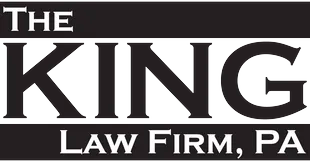What Happens If You Die Without A Will?
When someone dies without an estate plan, it is known as dying intestate. State laws, known as the laws of intestacy, determine what happens to that person’s assets and their estate. Florida has specific intestacy laws on the books just for this purpose.
Here at The King Firm, PA, we know that this process can be complex and confusing. For more than a decade, we have been helping residents in St. Petersburg, Tampa Bay, and throughout the state navigate the legal system, and this includes working through the probate and intestacy process. You can trust us to understand the law, to put your best interests first, and to work tirelessly on your behalf.
The Order Of Succession
Some assets, such as jointly owned property and life insurance with named beneficiaries, or retirement accounts with named beneficiaries, are not subject to the probate process and will go directly to the co-owner or named beneficiary. For all other assets, the law establishes an order of succession, essentially declaring who is supposed to inherit if there’s no estate plan to provide guidance.
At the top of the list is a surviving spouse. If the two people were in a valid marriage with no direct descendants, everything goes to the spouse. If there are children, then the ultimate heirs will depend on if the children were of the same marriage as the surviving spouse, if they were from mixed relationships, or not. It is important to understand the nuances of intestacy laws in order to be sure that the estate is distributed properly. Beyond the surviving spouse and children, more distant relatives of the decedent are in line to inherit including, parents, siblings, cousins, and so on.
Contact Us To Learn About The Intestacy Process
When someone dies intestate, the probate process can seem overwhelming with a lot of uncertainty. It can also be expensive, and certain heirs may not get the assets or items they anticipated. This is why it is so important to have representation that can provide you the clarity that you deserve. Do not hesitate to get in touch with our experienced lawyers at 888-712-4771 or by using our online contact portal. Our Florida attorneys can help you and your family find the solution you seek.

